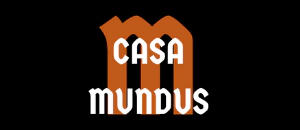The Rakes Progress - Igor Stravinsky - Barbara Hendricks - DVD

The Raké´s Progress - Ópera en 3 Actos
Compositor: Igor Feodorovich Stravinsky (1882 - 1971)
Libreto: W. H. Auden (1907-1973) y Chester Kallman, que se inspiraron en las pinturas y grabados homónimos (1735) de William Hogarth
Obra escrita en 1951
Act 1
Prelude
Scene 1
The woods are green
Anne, my dear (Trulove)
Here I stand / Since it is not by merit (Tom)
Tom Rakewell? (Nick)
Fair lady, gracious gentlemen / I wished but once
I´ll call the coachman, sir
Farewell for now (Anne)
All is ready, sir (Nick)
Dear father Trulove / Laughter and light
Scene 2
With air commanding and weapon handy
Come, Tom
Soon dawn will glitter (Whores)
Sisters of Venus, Brothers of Mars (Shadow)
Love, too frequently betrayed
How sad a song (Whores)
The sun is bright, the grass is green
Scene 3
No word from Tom
Quietly, night (Anne)
My father! Can I desert him
I go, I go to him (Anne)
Act 2
Scene 1
Vary the song, O London, change!
Nature, green unnatural mother (Tom)
Always the quarry (Tom)
Master, are you alone? (Nick)
Come master, observe the host (Nick)
In youth the panting slave (Nick)
My tale shall be told (Tom)
Scene 2
Introduction
How strange / O heart be stronger (Anne)
Anne! here!
My love, am I to remain in here for ever?
Could it then have been known (Anne)
I have not run away dear heart (Baba)
Scene 3
As I was saying / Come, sweet, come / Scorned! Abused!
My heart is cold, I cannot weep
Pantomime - Fa la la (Nick)
O I wish it were true (Tom)
Thanks to this excellent device (Tom)
Forgive me, master (Shadow)
Act 3
Scene 1
Ruin, Disaster, Shame
Ladies, both fair and gracious (Sellem)
Who hears me, knows me / Seven - eleven / Behold it, Roman, moral / Fifteen - and a half / Wonderful / An unknown object draws us / Fifty - fifty-fiv
Sold! Annoyed! / Now what was that!
You love him / If boys had wings
I go to him / Who cares a fig
Scene 2
Prelude
How dark and dreadful is this place
Very well, then, my dear and good Tom
Well, then - My heart is wild with fear
I burn! I burn! I freeze!
With roses crowned (Tom)
Scene 3
Prepare yourselves, heroic shades / Madmen´s words are all untrue / Leave all love and hope behind
There he is. Have no fear
I have waited (Anne)
In a foolish dream (Tom)
I am exceedingly weary (Tom)
Gently, little boat
Anne, my dear, the tale is ended now (Trulove)
Every wearied body (Anne)
Where art thou Venus?
Mourn for Adonis (Chorus)
Epilogue - Good people, just a moment
Sveriges Radios Symfoniorkester
Esa-Pekka Salonen dirección
Barbara Hendricks soprano (Anne Trulove prometida de Tom)
Erik Sædén bajo (Mister Trulove padre de Anne)
Greg Fedderly tenor (Tom Rakewell, joven libertino)
Håkan Hagegård barítono (Nick Shadow el Diablo)
Brian Asawa contra-tenor (Baba la Turca mujer barbuda)
Gunilla Söderström alto (Mother Goose dueña de una casa de prostitución)
Arild Helleland tenor (Sellem subastador)
Radiokören coro
Inger Åby dirección de filmación
Gunnar Källström dirección fotografía
En 1947 Stravinsky deseaba componer una ópera con libreto en inglés, su lengua adoptiva. Por recomendación de Aldous Huxley, se puso en contacto con el poeta Wystan Hugh Auden. El compositor quería que su ópera se basara en una serie de grabados, ¨The Rake´s Progress¨ (La carrera del libertino), que el artista inglés William Hogarth había realizado en la década de 1730.
La fructífera colaboración que iniciaron Auden y Stravinsky, en la que Auden integró también a su pareja de toda la vida, Chester Kallman, fanático de la ópera, se convirtió, en sólo cuatro meses, en una nueva versión del mito de ¨Fausto¨ ambientada en la Inglaterra del siglo XVIII: la historia de Tom Rakewell, un joven tentado por el sombrío Shadow quien, para procurar robarle el alma, lo aleja, a través de una serie de artimañas, de la pureza de su prometida Anne y lo interna en un mundo oscuro y decadente en el que abundan la lujuria y la codicia.
En esta obra, el poeta deja constancia inequívoca de su estilo en la creación de personajes memorables como Baba la Turca o Mother Goose, y en la fuerte impronta de moral cristiana coincidente con la recuperación del sentimiento religioso de Auden que flota entre líneas. Sin embargo, la marca más importante que Auden imprimió a ¨The Rake´s Progress¨ (La carrera del libertino) es aquella que justifica con creces la recomendación inicial de Huxley: su extraordinaria pericia verbal, su dominio de la rima en todas las variantes, y su certera habilidad combinatoria que hacen del libreto un texto exquisito de calidad única.
Fecha de edición: 28 de noviembre de 2005




